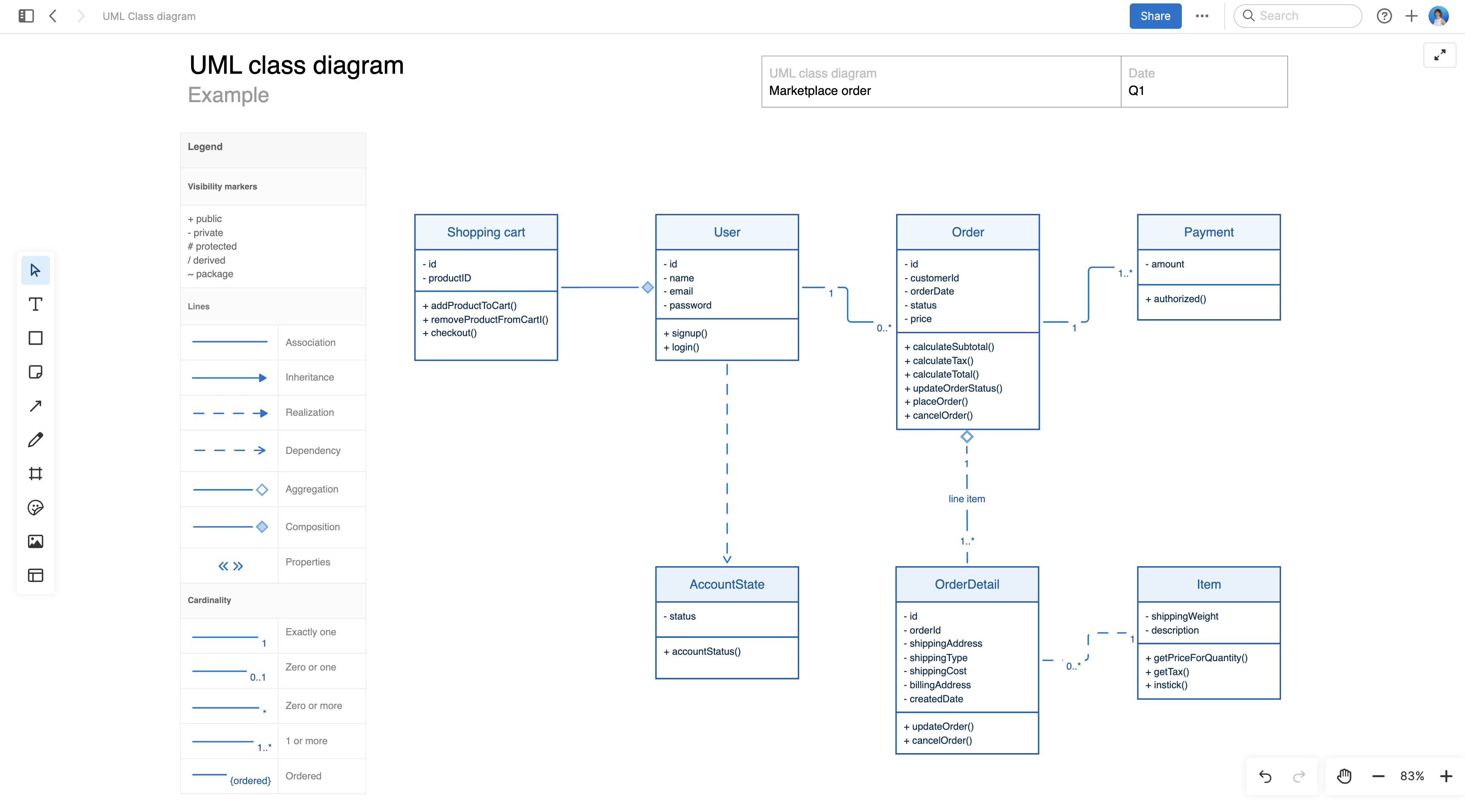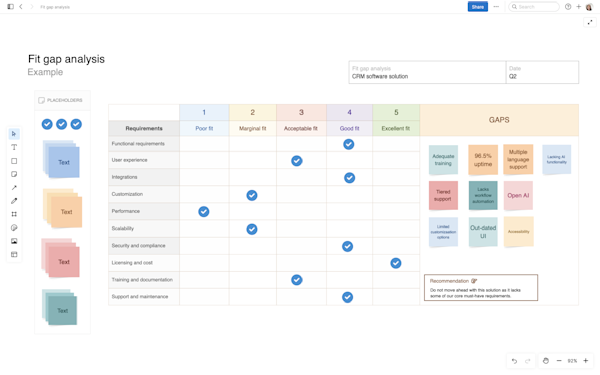What is the role of a software engineer?
Last updated: April 2025
Programmer, developer, coder. These are all terms sometimes used to refer to a software engineer. Put simply, a software engineer is someone who creates computer software. But a more accurate way to think about the role is that you apply engineering principles to the software development process — designing, developing, and maintaining software.
Great software engineers are exceptional problem solvers and essential partners in the product development process. While product managers lead the product vision (focusing on "why" and "what" to build), software engineers bring that vision to life. You deliver the technical "how" and help set the timeline that answers "when."
The field of software engineering is constantly evolving, making it an exciting and dynamic career path. And software developers are in high demand. In fact, the U.S. Bureau of Labor Statistics projects employment opportunities for software engineers will grow by 22% in the decade leading up to 2030.
Align engineering with product — try Aha! Develop free for 30 days.
Keep reading to learn more about this role including job titles, responsibilities, and important skills for succeeding as a software engineer.
What is a software engineer?
The responsibilities of a software engineer are broad, often encompassing everything that is needed to build and maintain code over time. You start by identifying the core functionality required to help solve user problems. From there, you outline the best approach for building the functionality while keeping the overall user experience in mind. You also identify broader requirements, such as the level of security and performance needed to deliver a lovable experience.
Once you know what needs to be built, it is time to design your solution. You will either deliver the solution yourself or hand your designs off to other programmers to write the code and test it. If the solution does not meet expectations, it goes back to the engineer to rethink the design. Once a solution is shipped to customers, software engineers may be involved in maintaining and enhancing it.
Depending on the organization, you may participate in more activities, such as sitting in on customer calls, demoing to customers and prospective customers, and even supporting sales and customer support by supplying technical answers to customer questions.
Types of software engineers
Software engineers build many different types of computer software, including operating systems, video games, middleware, firmware, mobile applications, business applications, and network control systems. Once you gain a strong foundation and develop some core skills, you can apply your expertise to almost any industry you can imagine.
Generally, we can group software engineers into two categories — application software engineers and system software engineers.
Application software engineers
Application software engineers build websites and applications for end-users. You help build new features and functionality as well as update and improve existing code to keep the product running smoothly. Engineers may write front-end or back-end code — some write both.
Application software engineers work as part of a development team — collaborating with product managers, designers, product marketers, sales, and support teams in order to deliver value to end-users.
System software engineers
System software engineers build operating systems and networks for customer-facing applications. You help connect separate software products into a single platform. This type of engineer typically focuses on back-end code. You work closely with data science professionals, senior systems architects, and other software development teams.
Common software engineering roles
It is helpful to have a basic understanding of what different job titles mean when you are looking through job listings for software engineering roles. As you advance in your career, you can decide if you want to continue to grow your skills as an individual contributor or if you would like to someday lead a team of developers. Both career paths can be rewarding — you will just need to decide which option will bring you the most long-term satisfaction.
Here are some of the most common job titles for software engineers:
Job title | Description |
Junior web developer | Junior web developers help create and update software applications. You work under the supervision of more senior developers to design, write code, and test software elements. |
Software developer | Software developers have at least one to three years of experience and handle more advanced software engineering projects. You create, develop, and test software elements, either writing the code yourself or preparing the documentation necessary for other programmers to write the code. |
Lead software engineer, Technical architect | Lead software engineer or technical architect is a senior-level engineering role. Your experience allows you to design and manage more unique or complicated software projects, help set team goals, and communicate with customers, partners, and leaders within your organization. |
Development team lead, Software development manager | A development team lead is responsible for an entire software team. While you may still write or design code at this level, you will also spend time coordinating efforts across teams to ensure software is successfully delivered to customers. You will find ways to remove roadblocks for team members and keep your team motivated and productive. |
Director, Vice President, Chief Technology Officer | A senior technology leader like a VP or CTO oversees the effectiveness of engineering across an organization. You keep your finger on the pulse of your company's engineering efforts and technology resources — looking for emerging issues, identifying opportunities to improve, and outlining strategic efforts to help the business achieve its goals. |
Responsibilities of a software engineer
Let's take a closer look at what software engineers do as part of a product development team. A software engineer's responsibilities can be grouped into six areas that mimic the software development lifecycle — capturing requirements, working on software design, development, testing, releases, and maintenance. Depending on your role and how your team is organized, you might specialize in one or two of these areas or be expected to complete work in all six.
Capturing requirements
Product managers outline the "why" and the "what" for new features and enhancements. Then it is up to you as a software engineer to define what success looks like and outline the requirements to ensure you meet that definition of success. You are responsible for understanding both functional requirements (how the software should function for users) and non-functional requirements (ensuring that the software is secure, maintainable, reliable, scalable, etc.).
Software design
Software design focuses on defining the characteristics of what you are going to build. This includes the software architecture — creating the blueprint for the development team. You will also work with the UI/UX team at this stage to design the user experience and create a prototype of the functionality to validate its look and the flow of design elements. This is an important step for helping the entire product development team visualize the look and feel of the new feature or functionality — so you can spot potential issues or improvements early in the development process.
Software development
During software development, you (or sometimes another developer or programmer) actually build the functionality. You write the code using the appropriate programming language. Your development team will have a specific development process intended to help each engineer move quickly while delivering high-quality code. Some teams follow a waterfall approach to software development while others aim to deliver value to customers more quickly using agile methodologies.
Software testing
Once the code is written, you test the code to uncover bugs or other inconsistencies that prevent the code from working as intended. Some organizations have a separate testing team to handle this step, often called the quality assurance (QA) team. QA may rely on a combination of automated and manual tests to ensure each new feature works as designed.
Software releases
Releasing software is the process of putting your new feature into the production environment where customers can actually use it. Many modern software companies use continuous integration and delivery (CI/CD) to help the engineering team ship code faster and more efficiently. CI/CD also ensures an efficient process for shipping bug fixes or rolling deployments back if something goes wrong.
Software maintenance
Delivering a new feature or piece of functionality does not mean that your job as a software engineer is done. Any piece of software will require regular updates, improvements, and fixes as people use it and as their needs change.
Visualize software architecture with a UML class diagram template — try it free.

Important skills for a software engineer
Software engineers need a wide variety of skills — both technical and non-technical. It is common for software engineers to be well-versed in:
Programming and coding
Fundamentals of computer science
Software design and architecture
Algorithms and data structures
Information analysis
Version control
Debugging software
Testing software
Collaborating
Presenting solutions
Empathizing with customers
How to become a software engineer
Many software engineers pursue a bachelor's degree in a relevant discipline such as software engineering, computer science, information technology, or computer and information systems. Some also earn a master's degree in software engineering.
While formal degree programs used to be the only way to break into the software engineering field, it is now possible to develop your skills through college certificate programs, associate degrees, or even self-study, apprenticeships, and boot camps.
Software engineering can be a rewarding role. You have the opportunity to make people's lives easier by developing software to help them at work or in their day-to-day lives. And you can be part of a team focused on creating value — for your business and customers alike.
FAQs about software engineering
Not all software engineers specialize in artificial intelligence, but having a basic understanding of AI can be useful — especially as more applications incorporate AI-powered features. Some software engineers may even choose to specialize in AI as part of their career path.
For entry-level software engineers, starting with common languages like Python, Java, or JavaScript is recommended. The best language often depends on the type of software you want to build, whether that is web applications, operating systems, or AI models.
A degree in computer science or a related discipline can help, but it is not always required. Many software engineers build skills through coding boot camps, online courses, and hands-on practice.
These terms are sometimes used interchangeably, but there can be a distinction. Software developers typically focus on writing code and building applications. Software engineers apply engineering principles to the broader development lifecycle, including architecture, testing, and maintenance.
Software engineers can use project management tools like Aha! Develop to manage tasks, collaborate with development teams, and track progress across sprints. Tools like Aha! Develop often integrate with version control systems and CI/CD pipelines.
Yes, many software engineers are involved in testing their own code, and some collaborate closely with dedicated quality assurance teams. Engineers often write unit tests and automated test scripts as part of their development workflow.


